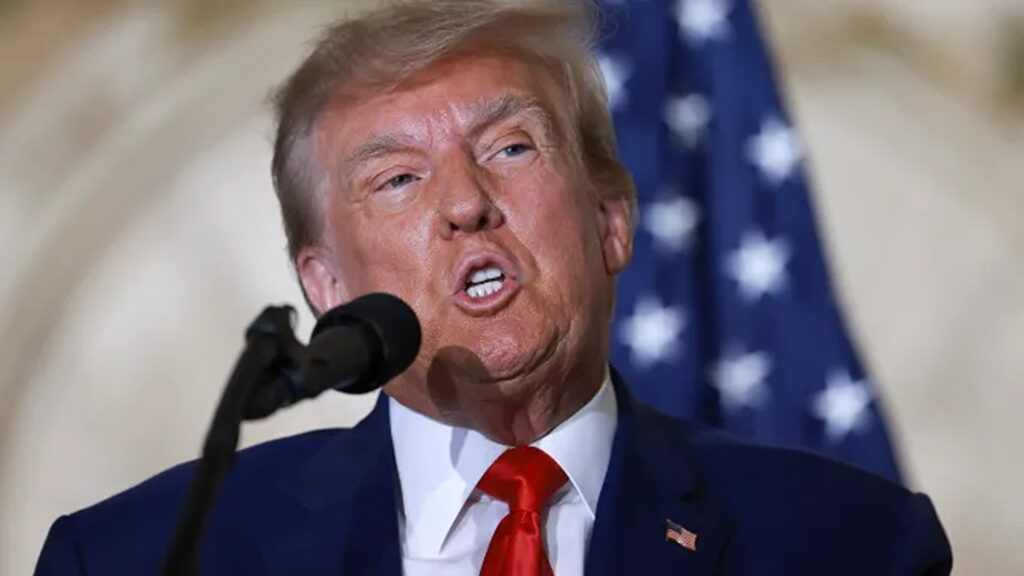Republican presidential candidate Donald Trump has pledged to reverse numerous environmental policies implemented by the Biden administration, as reported by the Washington Post.
During a meeting with top U.S. oil executives in Florida last month, Trump discussed rolling back several key initiatives aimed at reducing emissions and promoting renewable energy sources.
According to sources familiar with the meeting, Trump focused on dismantling Biden’s emissions rules that support electric vehicles and putting an end to the administration’s halt on new liquefied natural gas export permits.
Additionally, Trump proposed expanding oil drilling leases in the Gulf of Mexico and reversing drilling restrictions in the Alaskan Arctic.
His stance was clear as he reiterated his criticisms of wind power during the meeting.
The meeting attendees included the CEOs of major energy firms such as Venture Global, Cheniere Energy, and representatives from Chevron, Continental Resources, Exxon, and Occidental Petroleum.
Trump purportedly urged the executives, stating that a contribution of $1 billion to his campaign would be a “deal” for them.
This push for substantial campaign funding from oil leaders underscores Trump’s commitment to fostering the oil industry’s growth at the expense of more stringent environmental protections.
His promises reflect a broader agenda to revive the fossil fuel industry, which he believes will bolster economic growth and job creation.
Trump’s approach starkly contrasts with President Joe Biden’s environmental policies, which have been touted as beneficial not just for the planet but also for the economy.
These policies are a significant part of Biden’s campaign as he seeks reelection in the upcoming November 5 presidential election.
The oil executives’ response to Trump’s proposals and fundraising requests remains unclear, as representatives from Exxon and other companies have either declined to comment or not responded to inquiries about the meeting.
This scenario highlights the ongoing debate and tension between economic development driven by fossil fuels and the urgent need for environmental sustainability.
